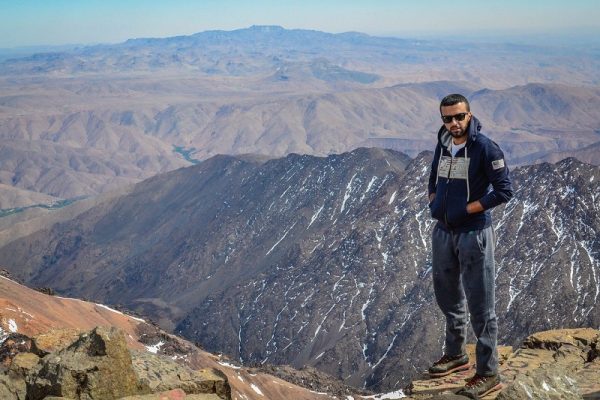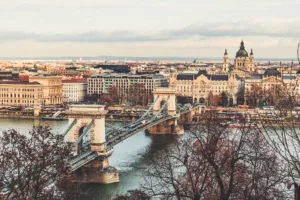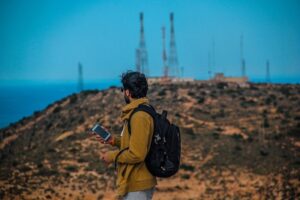Travelling Is Overrated and Here’s Why

WHY TRAVELLING IS A WASTE OF TIME?
Travelling sure is interesting and fun, theoretically. But travelling is more than just visiting interesting places and clicking pictures. It requires a lot of arrangements, planning, and effort. It is an utter waste of time as it adds more stress to life rather than reduces it.
Firstly, it is expensive. True, an average person can afford to tour a little, but money’s always spent. The cost of transport, food and tourist attractions is huge. We should also take into account all the unexpected expenses that accompany travelling. Virtual tourism, on the other hand, saves a ton of money. And the experience is much more inclusive and personal.
Secondly, travelling is time-consuming. Hours are wasted waiting for cars, buses, planes and trains. And the journey also takes time. On the other hand, virtual tours save time by giving a very immersive and great and real tour. You don’t have to leave your home and work to experience this. You can even visit places which are normally closed.
Travelling is known to be enticing and stimulates our visual senses and widen our horizons. But what travelling can truly give us, we can get at home. Rather introspect within yourself; sunsets from a grassy field will be the same as seen from Thames or Cappadocia. It is about the feeling and not the place.
MILLENNIAL OBSESSION WITH TRAVELLING
They top themselves off with a hunger for new experiences by gazing at delightful spots that spring up on their Instagram feed. They make travel lists of must-dos on Pinterest. They continually check for modest airfares on the Internet. They set aside strictly for their next huge excursion. Also, they do this since they’ve some way or another figured out how to persuade themselves that voyaging is an essential interest in themselves. Quotes like ‘The world is a book and the people who don’t travel read just a page’ legitimize their decisions to travel. They travel to distant terrains to track down themselves (whatever that implies) and become better individuals. They boast to others that voyaging has expanded their brains and opened up their viewpoint on life. They inundate themselves in unfamiliar societies to encounter an enhancing life. To put it plainly, voyaging is not generally considered an extravagance, it has become to some degree a need for twenty to thirty-year-olds. Also hence, I am the main millennial who thinks voyaging is over-evaluated.
There is additionally nothing vivid or groundbreaking in the manner most Millenials are voyaging. Millennials are excessively occupied with attempting to take the ideal photograph to present on Instagram to absorb the unfamiliar culture. Going for a great many people isn’t a type of excursion towards self-edification. It’s all the more a type of gluttonous idealism. We don’t make a trip to widen our psyches or experience unfamiliar societies. We travel to get away from our unremarkable lives, to flee from the unforgiving real factors of our obligations. We don’t survive significant encounters in our movements; we only enjoy gluttonous pursuits going from eating at extravagant overrated eateries to celebrating with unfamiliar lecherous outsiders. We don’t even entirely investigate, since we rely upon Urbanspoon and TripAdvisor to decide our agenda.
IMPACT OF TRAVELLING ON THE WORLD
Travel obliterates nearby societies – The globalization of food, travel, inns, and language decreases the very culture we ventured out such long ways to see. Rather than going out to look for the obscure, the vast majority stay in retreats and inns, never encountering the country they are in. We go to McDonald’s or eat food we can get at home. It’s like we travel to never venture out from home. Any place we go, we appear to carry our western culture with us.
Travel makes the world Disneyland – From the slope clans of Thailand to the Andes to ranchers of America, explorers have a specific assumption for what a spot is and how individuals should act. We travel to see that assumption. We travel to see Crocodile Dundee, Mayans, Native Americans, and slope clan societies in Asia. Societies all over the planet then, at that point, put on an act to give us what we need and all the while “Disneyize” their way of life. I disdain to see the little slope clans in Thailand or Native American shows in America or “conventional” dance in Vietnam. It’s not the way that they truly act. It’s how they represent vacationers. Doesn’t that simply debase the experience and, eventually, cause more mischief than anything?
Travel obliterates nearby economies – All that movement in enormous inns and worldwide eateries doesn’t help the neighbourhood economy. The vast majority of that cash is eliminated by enterprises to the administrative centre. Voyagers go with what they know and most will remain at the Marriott before they stay in some obscure spot, never contemplating where the cash is going. Travel can be a gigantic monetary shelter however provided that the cash stays in the neighbourhood.
CONS OF TRAVELING

Language Barrier
If you communicate in English, you will most likely be fine in numerous nations on the planet, particularly in very traveller areas. In any case, on the off chance that you choose to go to a few fascinating objections or off in an unexpected direction, you may have a few language issues. By and large the more unknown dialects you talk, the better it is for voyaging abroad. Yet, most individuals talk, on normal, just 2-3 dialects fluidly. As an answer, you can generally recruit a nearby manual to assist you with the trip. I suggest recruiting neighbourhoods straightforwardly with next to no go-betweens and enormous companies. This way you can all the more likely add to the neighbourhood economy.
Social Shock and Adaptation to unfamiliar traditions
Various nations have various societies and customs. This is particularly evident with regards to how individuals dress, how they impart, and how they act. For instance, in Islamic nations, ladies are relied upon to cover their body and their head. This is altogether different from a few European nations where you can stroll around half-exposed with pink straps and no one will focus or say anything. In certain districts, you shouldn’t sit close to a cabbie as a lady. You need to sit in the rearward sitting arrangement. It is deciphered as being open for being a tease and being congenial. In a few Asian nations, there are enormous fines for eating and drinking in open transportation. I suggest doing a few examinations about the traditions of that country you are voyaging and getting ready. It is essential to regard different societies and adjust as needs be.
You are all alone in an unfamiliar far off country
When voyaging abroad you are far away from your loved ones. Once abroad, you leave your usual range of familiarity and enter the realm of the obscure where the sky’s the limit. From here on out you are all alone in the new obscure world. In the case of something occurring, no one will help you. All things considered, there are numerous overall quite supportive individuals out there yet no one can say with any certainty. There is no one to offer you guidance or pay attention to you to stand up. Putting forth and keeping up with fellowships takes effort and time.








